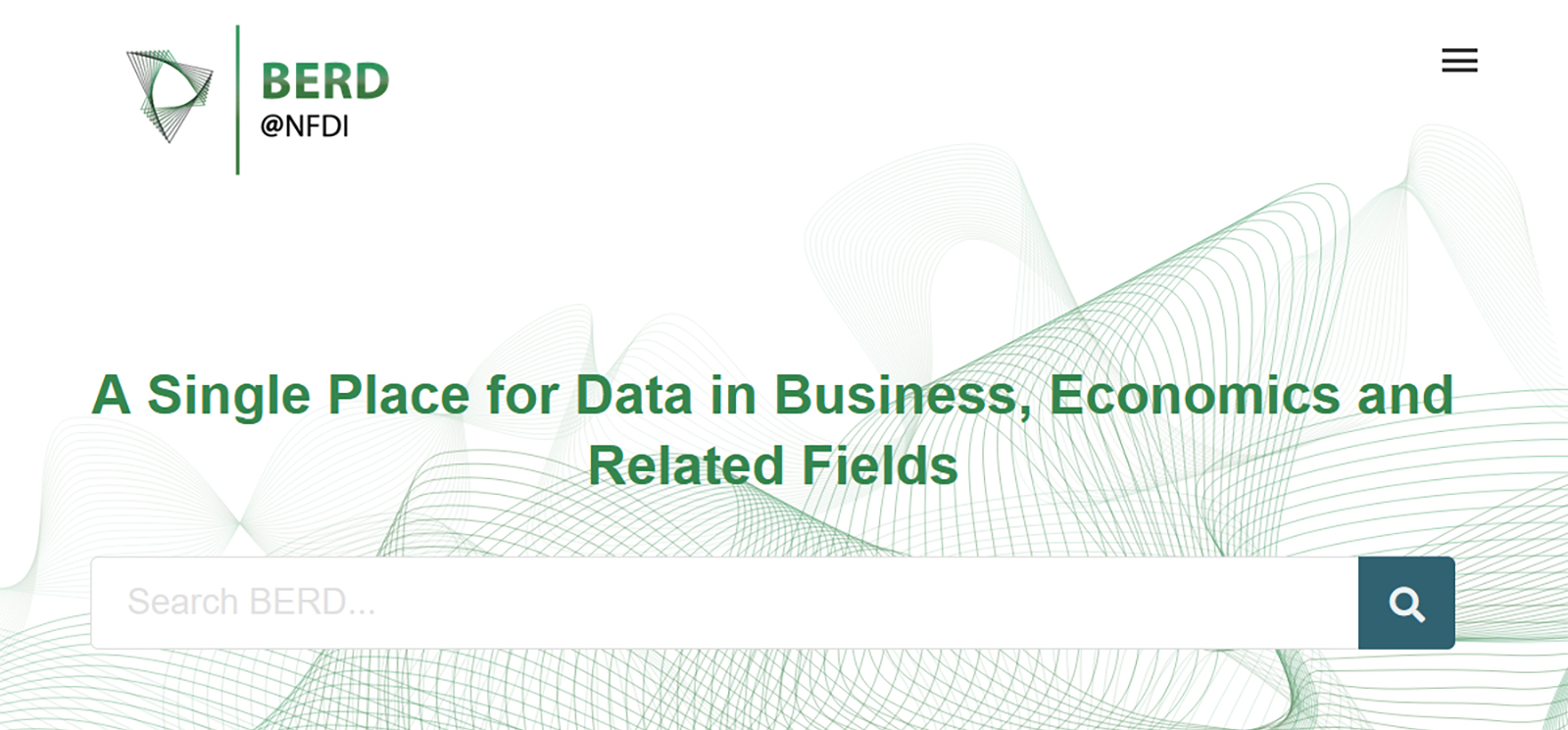Three highlights in the NFDI consortium BERD@NFDI
Legal advice, knowledge graphs and BERD Academy

In the digital age, where data is the new currency, researchers in economics face the challenge of not only collecting and analysing large amounts of data, but also ensuring that its use complies with the legal framework. This challenge is particularly acute in the fields of economic research, where data processing increasingly involves unstructured data formats. This is where the NFDI consortium BERD@NFDI comes in, to provide researchers with tools that both facilitate data analysis and ensure compliance with data protection regulations. Three highlights from the BERD consortium of the NFDI are presented below.
Navigate through legal issues with interactive Virtual Assistant (iVA)
The NFDI consortium BERD@NFDI has developed an Interactive Virtual Assistant (iVa) to help users understand the complexities of data protection regulations, especially with regard to legal issues, and explore the legal options for using data in their projects. Specifically designed for the fields of business, science and social sciences, the Interactive Virtual Assistant guides users through a decision tree with concrete questions, short examples and precise definitions; instead of pure theory, it provides practical insights. The Interactive Virtual Assistant consists of different modules, each of which deals with a specific data protection issue.
Select a module and try it out: https://www.berd-nfdi.de/servicestools/legal-questions-in-data-science/
Development of a knowledge graph infrastructure: BERD and the processing of German company data
At BERD@NFDI, we are developing a knowledge graph infrastructure for data from German companies that is distributed across different providers, registers and time periods. Valuable data records are often still limited to analogue books and documents. Using optical character recognition (OCR), we convert the text in these books and documents into machine-readable formats. Once the data is digitised, we use various algorithms and techniques to structure and organise it. This includes parsing the text, identifying key elements and attributes and establishing relationships between different data points; unstructured data is converted into structured and semantically enriched formats. In this way, a comprehensive knowledge graph is created.
Take a look at the projects: https://www.berd-nfdi.de/servicestools/knowledge-graph/
The diversity of the BERD Academy: from data science courses to workshops
The BERD Academy is an integral part of the BERD@NFDI consortium . It offers free courses in data science and management for students and professionals in the economic and social sciences. With different formats tailored to different levels of experience, the Academy focuses on providing application-oriented training to make data science easily accessible. The courses cover relevant topics such as big data and machine learning, always in line with the dynamic developments in the field. BERD Academy recognises existing graduate skills but also offers introductory courses to bridge any gaps in expertise. Self-paced options, including R and Python courses, enhance accessibility. Courses emphasise practical applications and encourage peer-to-peer exchange – all with the goal of preparing future data scientists for a modern, data-driven economy.
Take a look at the courses on offer: https://www.berd-nfdi.de/berd-academy/
